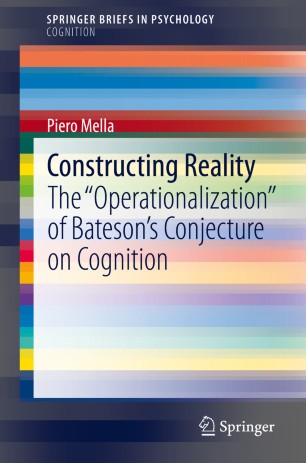

Most ebook files are in PDF format, so you can easily read them using various software such as Foxit Reader or directly on the Google Chrome browser.
Some ebook files are released by publishers in other formats such as .awz, .mobi, .epub, .fb2, etc. You may need to install specific software to read these formats on mobile/PC, such as Calibre.
Please read the tutorial at this link: https://ebookbell.com/faq
We offer FREE conversion to the popular formats you request; however, this may take some time. Therefore, right after payment, please email us, and we will try to provide the service as quickly as possible.
For some exceptional file formats or broken links (if any), please refrain from opening any disputes. Instead, email us first, and we will try to assist within a maximum of 6 hours.
EbookBell Team

0.0
0 reviewsThis brief presents an overview of Gregory Bateson’s Constructivist method of Cognition. Bateson proposes a theory of cognition that is based on the abstract notion of difference that the mind distinguishes and perceives and represents information that constitutes and separates how different states are ordered, grouped, and classified. Bateson, however, does not clearly indicate how a cognitive system can develop a knowledge of reality from the perception of these differences. This book seeks to offer a scientific approach to Constructivism. Using Bateson’s hypothesis, chapters discuss how our mind distinguishes and elaborates differences, allowing us to form perceptions of objects, and how these objects can be described and compared. Chapters also discuss how from differences, it is possible to construct concepts or ideas of how these can be defined and how to derive from these differences the meanings of the signs used for the structuring of languages. The brief offers a coherent structure of propositions that form an interpretative theory of the modus operandi of the human mind, which will be useful not only in shedding light on our cognitive processes, but also in laying the formal groundwork for artificial intelligence.
Constructing Reality is a must-have resource for researchers and students of the cognitive sciences, as well as education sciences, and researchers and scholars of artificial intelligence, learning theory, and intelligent automata programming.